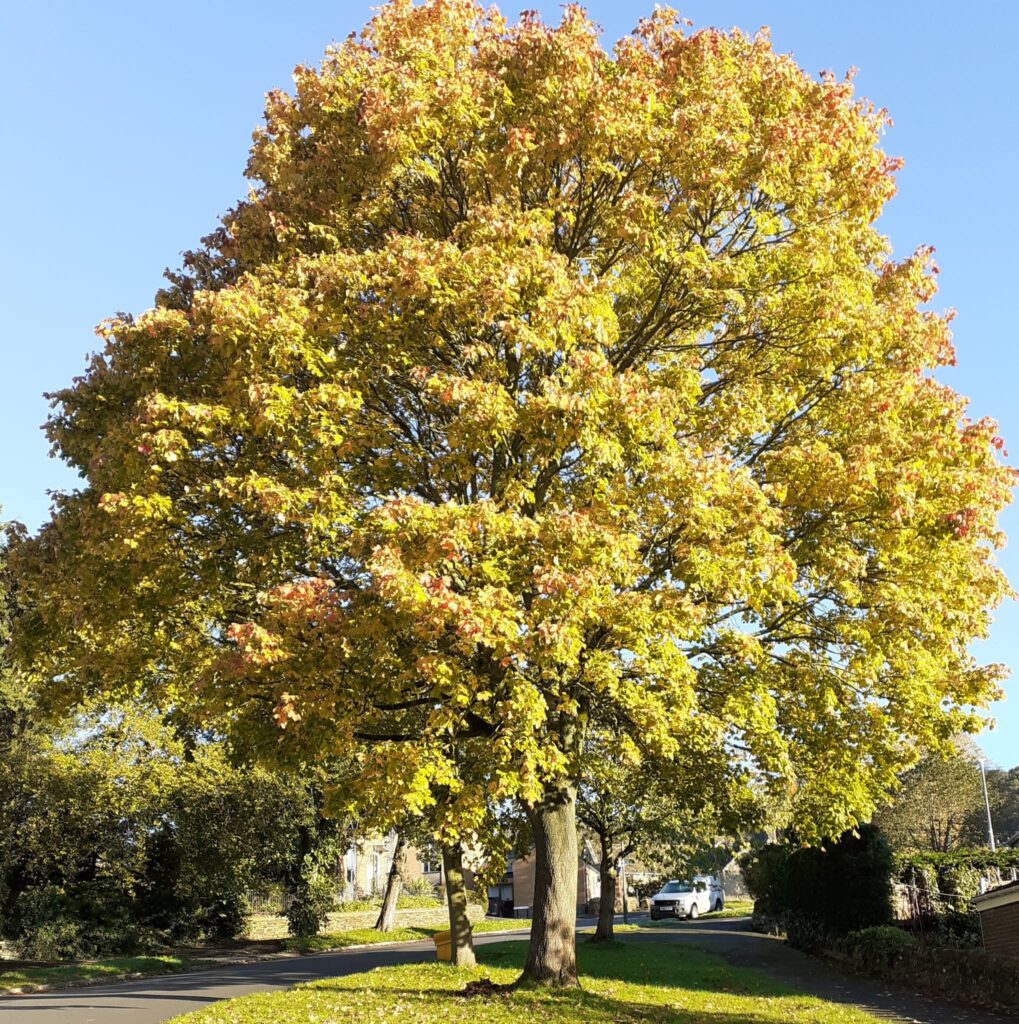We met surrounded by puddles after the recent floods in the park, but this morning the sun was shining and there were treated to glorious autumn colours all around.


Jesus the ordinary
I started the think about what Jesus’s life would have been like growing up the son of a carpenter in Nazareth after we discussed Jesus / Christ as part of looking again at our values a few weeks ago.
We know of his very early years as a refugee in Egypt fleeing the powers that be. A reminder of those in Gaza wanting the border with Egypt to be opened right now.
Jesus would have received an education from 5 years old when boys and girls were given a basic scriptural grounding.
At the age of 10 boys were given a grounding in how to live as a good citizen in Jewish society, learning the Oral Torah which gave them direction, guidance, teaching and knowledge of the Law.
By 13 boys typically started learning a trade as an apprentice. By this age they had learned to fulfil the commandments.
However for those who were extraordinary study could be continued. Those who were gifted and dedicated would study at the bet midrash (house of study) which was a rabbis’ school.
Adults from the age of 15 could study here and both men and women could come along to these sessions and listen in to what was taught and discussed. People could also come and learn without becoming Rabbis and would be called disciples even into their old age.
- I had a few of my own thoughts at this stage. Was it here that Jesus impressed the adults in his knowledge and understanding when his parents lost him as a child?
- Was it here where Mary studied at the feet of Jesus while Martha bustled at home?
- Was it here Jesus first came across his disciples before he recruited them?
Those who were exceptional students and who studied hard enough and dedicating years to training could become rabbinic teachers themselves.
Although marriage was strongly encouraged in men at around 20 there were those so dedicated to their studies that they delayed marriage to give their full attention to their education. Those who continued their studies until the age of 30 had the authority to teach others.
So we can conclude that up the age of 30 when Jesus began the ministry we read about in the gospels that he led the life of an ordinary but exceptional student.
Even among those who continued to study there were Rabbis and RABBIS. The later taught with authority. In Matthew 7:28 we read following the Sermon on the Mount:
“When Jesus had finished saying these things, the crowd were amazed at his teaching because he taught as one who had authority and not as their teachers of the law.”
The three years of ministry marked Jesus out as extraordinary, he worked miracles, was a brilliant storyteller, he taught with authority and often challenged the religious leaders of the day. So extraordinary were those three years that his story and teachings have lasted 2,000 years and founded a world religion.
Poverty or Riches?
So how would Jesus provide for himself and his disciples? Women often supported their men whilst they taught or studied. Women helped run the family farm or manage a business, giving the husband time to study. (Think of Proverbs 31, where the wife ran the business, and the husband “sat in the gate” – either in government affairs or in intellectual discussions.) Proverbs, of course, is from an earlier time, but the same thing was true in later Judaism – in pious families, the wife often would earn the money so that the man could spend his time in religious study. Extended families would also support a brother or son who was engaged in study too.
Often disciples would travel together with a rabbi, and they would take weeks away to go on a teaching trip. A disciple had to ask his wife’s permission to be away from home to study longer than 30 days. When they travelled, rabbis and disciples would pool their money to buy food, etc. Jesus received contributions from wealthy women, and they were known for supporting other rabbis too. When they travelled, the villages they taught in were expected to extend hospitality, giving them food and shelter.
Prayers
And so we come to Israel, Palestine and Gaza, and focus on what is happening.
Pray for those in power in Israel, in the Gaza strip and those trying to broker peace that they will be influenced by the words of Jesus.
Jesus said love your enemies …
Jesus lived in a land occupied by the Romans, and he taught that we should pray for those who persecute and oppress us.
He commended peace makers, reconcilers, generosity, forgiveness, comforters and those who were merciful. …
Pray for those who have lost loved ones, homes and their community, may your spirit bring comfort and an urge to reconcile not revenge. …
We pray for Christians living in the area to be salt and light and not suffer persecution for their beliefs and actions….
Heavenly Father, we remind ourselves of the miracles Jesus performed and we ask something of you that seems impossible. ,,,
We ask for Peace with Justice. Shalom
AmenSome Thoughts on Sharing Bread and Wine
At the most basic level, bread and wine sustained the life of God’s people. Both were staples of Israel’s diet — bread because of the simplicity and reliability of grain, and wine because water could be so scarce and contaminated in the ancient Near East.
For that reason, bread and wine were also valuable gifts of friendship and hospitality.
A bit of musing – I wondered if Jesus had lived in different cultures whether he would have used tea and rice (China) tea and poppadum (Indian subcontinent) coffee and potato or here in Britain bread and watered down beer?
In Judaism, however bread and wine are often used as symbols of important concepts. For example, bread may be seen as a symbol of the basic sustenance that God provides, while wine may represent the joy and abundance that come from following God’s laws.
As Christians we see use bread and wine to remember what Jesus has done for us.
A symbol of the promise of the coming feast in the new heaven and renewed earth.
When Jesus took up the bread and the cup of the Last Supper, he was handling objects thick with associations from Israel’s past. Bread and wine appear regularly, together and apart, throughout the Old Testament and Jesus’s own ministry. Here was bread long baked, and wine well aged.
Why did Jesus use bread and wine at the last supper?
I wonder if Jesus used these basic common foods not just because they were thick with symbolism to Jewish culture, but because he was poor and he knew those who followed him would be able to obtain these basic food stuffs in remembrance of him whatever their circumstances. Jesus stood with the poor and needy.
As a symbol of standing with those doing without today we are taking bread and water not bread and wine. We stand with the poor as Jesus did.
Bread and Wine
Life sustainer, healer, forgiver, reconciler, gift giver, covenant maker, Jesus is Israel’s God made flesh. Sharer of bread
Miracle worker, carpenter, itinerant teacher, story teller, wine blesser.
Recent Comments